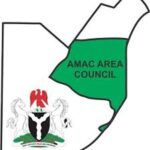By Daniel Tyokua
Helpline Foundation for the Needy, Abuja said better opportunities are underway in science and technology education for girl child in the Federal Capital Territory and beyond.
Founder and president of the group, Dr Jumai Ahmadu during an event organized in commemoration of this year’s Internationl Day of Girls and Woman in Science, at the weekend in Abuja.
She called on girls and women to take science education more serious to enable them take advantage of the many opportunities science and technology present.
The event which was organized in partnership with Make a Difference for the Needy Foundation and Association of Wives of Traditional Rulers in FCT, was designed to create awareness and an interactive session for school girls and women about importance of eco emcee education.
While urging parents to encourage the girl-child to study science related subjects, equally called on teachers to pay special attention while teaching the girl-child to entice them into science education.
According to her, the theme of the Day: “Equal Access and Participation in Science for Girls in Accelerating Progress Towards National Development” was timely and couldn’t have come at a better time.
Ahmadu, who spoke through the Foundation’s Coordinator on Special Programme, Onoja Godwin, noted that a significant gender gap has persisted throughout the years at all levels of Science, Technology, Engineering and Mathematics (STEM) disciplines all over the world.
She therefore stressed the need for donor agencies to maintain gender equality and inclusiveness in grants giving and scholarships, so that girls and women can maximise their potentials in science.
Jumai added that even though women have made tremendous progress towards increasing their participation in higher education, they are still under-represented in the STEM fields.
“A brief rundown of the statistical position of women in research fields of science to educate you more to mention only four observations women are typically given smaller research grants than their male colleagues and, while they represent 33.3% of all researchers, only 12% of members of natural science academies are women in cutting edge fields such as artificial intelligence, only one in five professionals (22%) is a woman.
“Despite a shortage of skills in most of the technological fields driving the Fourth Industrial Revolution, women still account for only 28% of engineering graduates and 40% of graduates in computer science and informatics. Female researchers tend to have shorter, less well-paid careers”, she stated.



